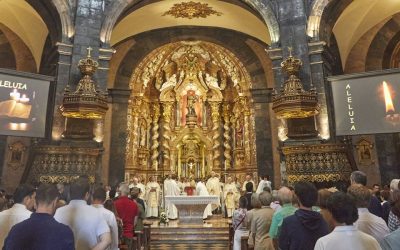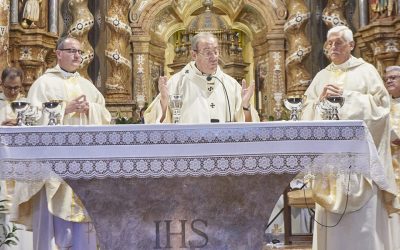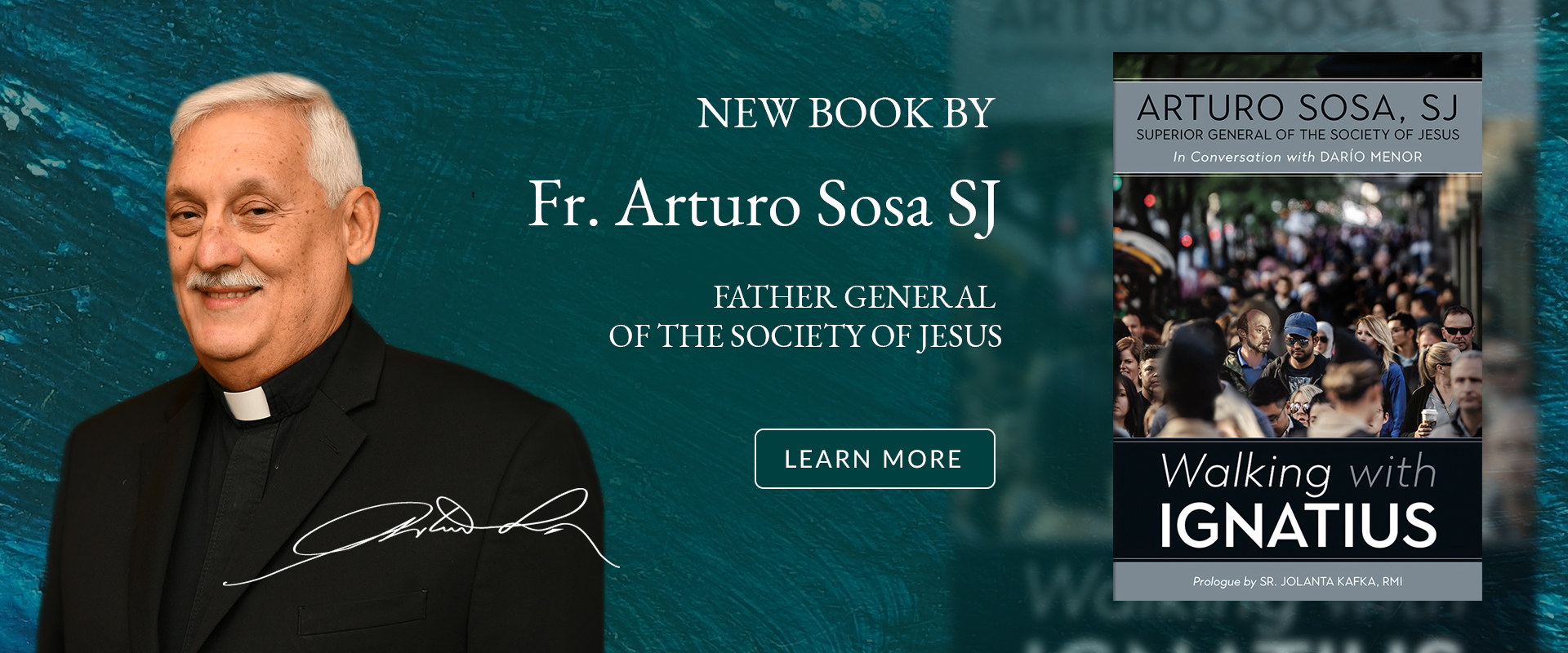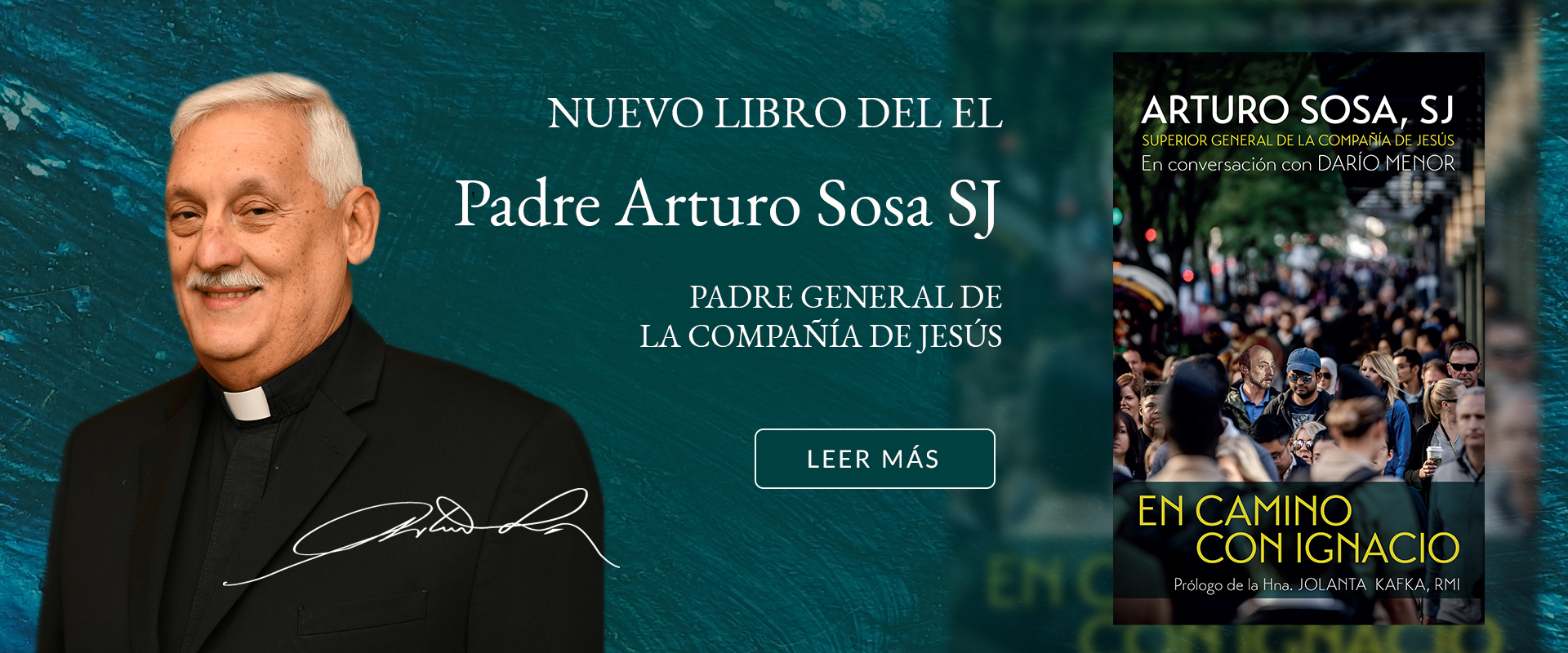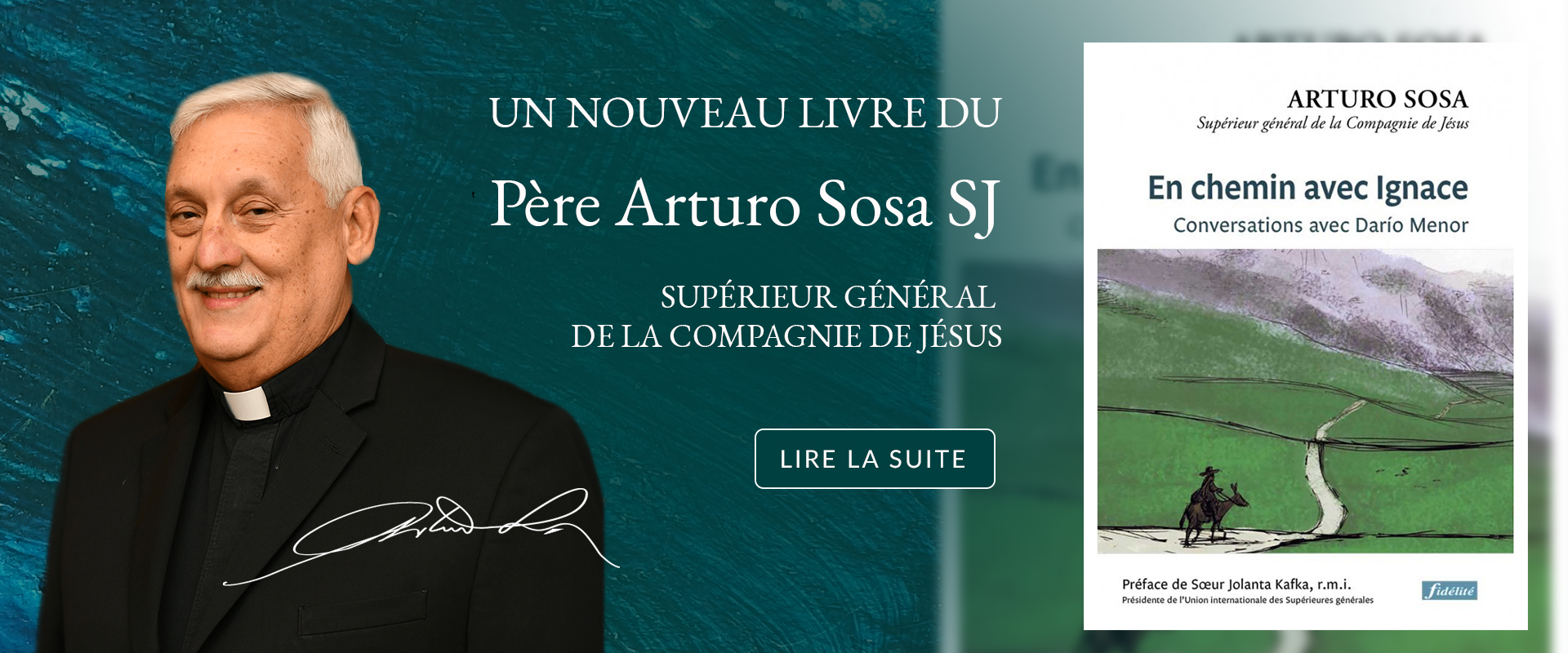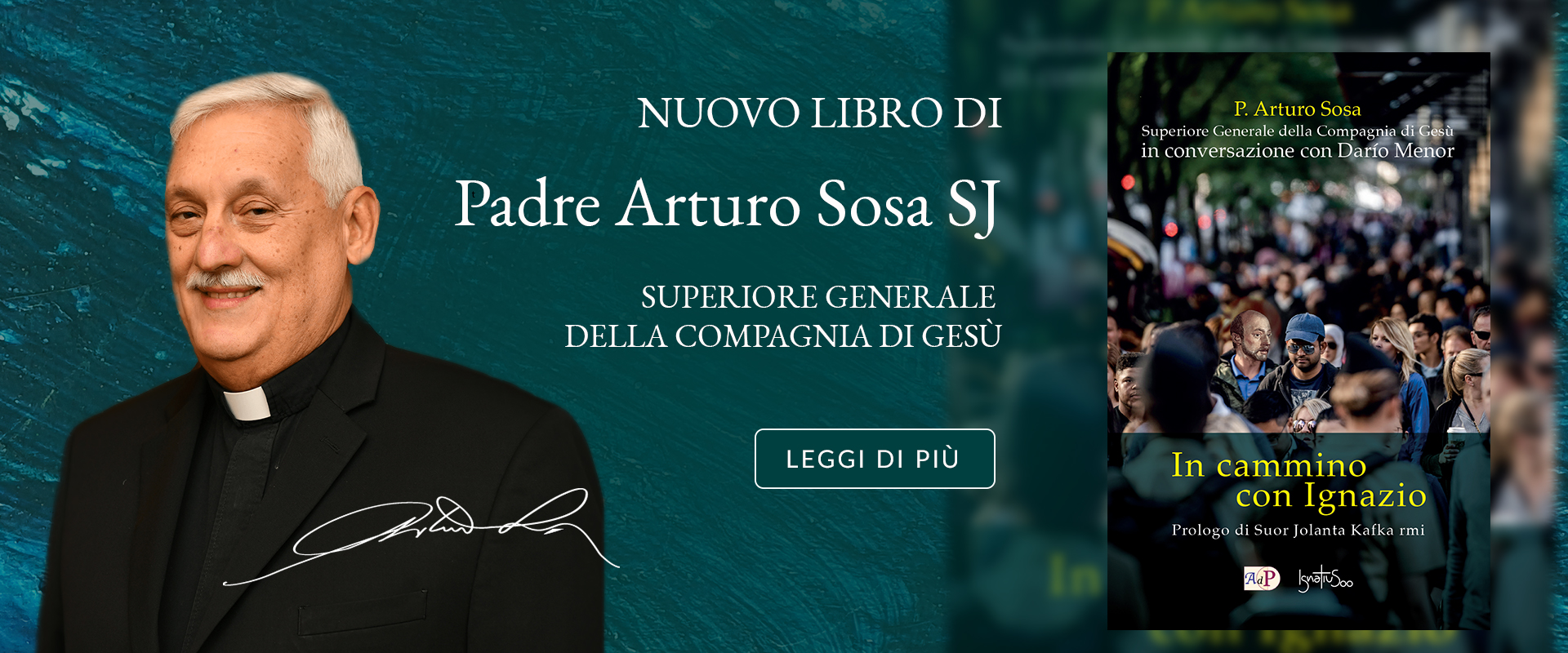During this Ignatian Year, we are publishing a series of homilies that Fr. General Kolvenbach held on the feast days of St. Ignatius. In this homily, Fr. Kolvenbach focuses on the intimacy with God the Father.
Church of Saint Ignatius, Rome, July 31st 1999
Celebrating the feast of Saint Ignatius this evening in the church dedicated to him, we have to realize that we are on the threshold of the year 2000. Saint Ignatius accompanied us throughout the year of Christ and we learnt from him how to follow Christ on the cross and in glory, always “entirely my God” (Spir. Diary, Febr. 27th 1544). Then he helped us to live the year of the Spirit, teaching us the discernment which discovers in all things the greatest service one can render the Lord and his Church. Today we expect a word from Saint Ignatius to guide us towards him who is at the beginning and end of every human existence: God, the Father of Jesus and our Father.
Just as every child discovers his father not in books and studies but in a living experience, so Saint Ignatius learnt from experience that God is his Father who is in heaven. Living his everyday life he learnt that “God is my Lord”. In his letters on the occasion of a bereavement or illness, of a birth or wedding or any other sad or joyful event, he often reminded [his reader] that these are always a gift of God, a loving gesture of our Father. He wrote: “We have a God who is so good, so attentive and loving towards us, as only to choose what is the best for us”.
Ignatius was not a dreamer who was ignorant about life or a naive person who did not face reality. He knew from experience that the path leading to God is steep and hard but never absurd or repugnant, because a loving Father is present in all things, is working for us, is permanently among us, calling each person by name, taking particular care of each and every plant and animal. The Father respects every creature, however small, and without him no sparrow falls to the ground; though, Jesus says, each one of you, all of you, are worth much more than a multitude of sparrows.
In his familiarity with God the Father, Saint Ignatius knew from experience that he was a very small servant in the presence of his divine Majesty. But the Father made him understand that the divine omnipotence which created and continues creating everything does not act to either cause wonder in creatures through brilliant, spectacular action or to crush us with his strength. God creates as a Father who generates out of love, out of the desire for loving closeness. He sets us on the way, trusting us, rejoicing when he sees us grow in intimacy with him until the day when he welcomes us to the Father’s house. The divine Majesty’s omnipotence manifests itself in this ineffable goodness of a God the Father who bends first of all over the future of the little ones and the weak and, with unfathomable tenderness, over the prodigal sons. The Virgin praised him in her canticle: He exalted the lowly, he filled the hungry with good things, and his mercy extends from generation to generation. Faced with the Father’s inexhaustible goodness, Ignatius felt ashamed and often signed his letters with the confession: Ignatius poor in goodness, poor in recognizing that everything is gift of God, that everything is grace.
Ignatius found God’s desire to speak to us an overwhelming expression of the Father’s goodness. He unceasingly invites us to a colloquy, to converse with he who is the Lord but whom we can speak to as a friend speaks to a friend, thanks to his goodness. God speaks to us often and under many forms because he loves us and wants to approach us, considering us valid interlocutors, free and responsible adults. In fact God our Father made himself vulnerable by entering into conversation with us: in his divine goodness he chose to run the risk of our refusing this dialogue, of our betraying his word. He loved us to the, point of giving us his Son as word of life and this dialogue with us led to the violation of the cross. And yet, though he knows the language of our human history with its sad adventures of ill will and unfaithfulness, God in his goodness has spared himself no risk and continues to speak to us through his living Word, a Word of flesh and blood.
Knowing himself to be poor in goodness, Ignatius invites us this evening to speak with him who is Goodness, with him who wishes to be nothing other than divine Goodness: he invites us to speak with him as a servant speaks to his Lord, but also as a friend speaks to his Friend, breaking the bread and pouring the wine, so that our hearts may burn with love in receiving the body and blood of Divine Goodness.
Read the other homilies here.


